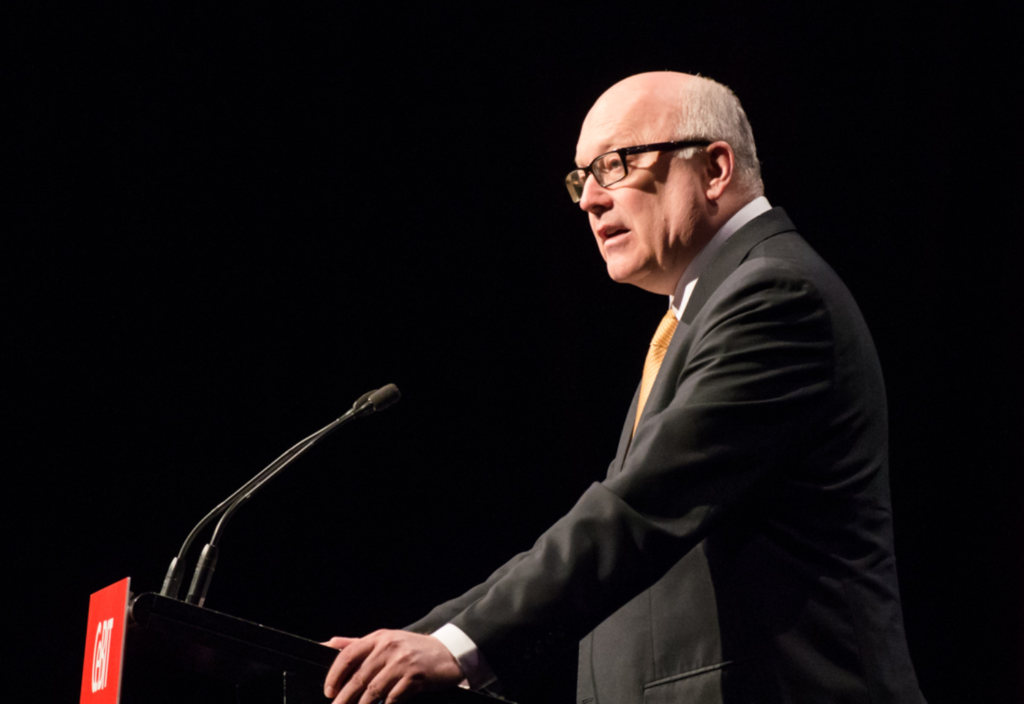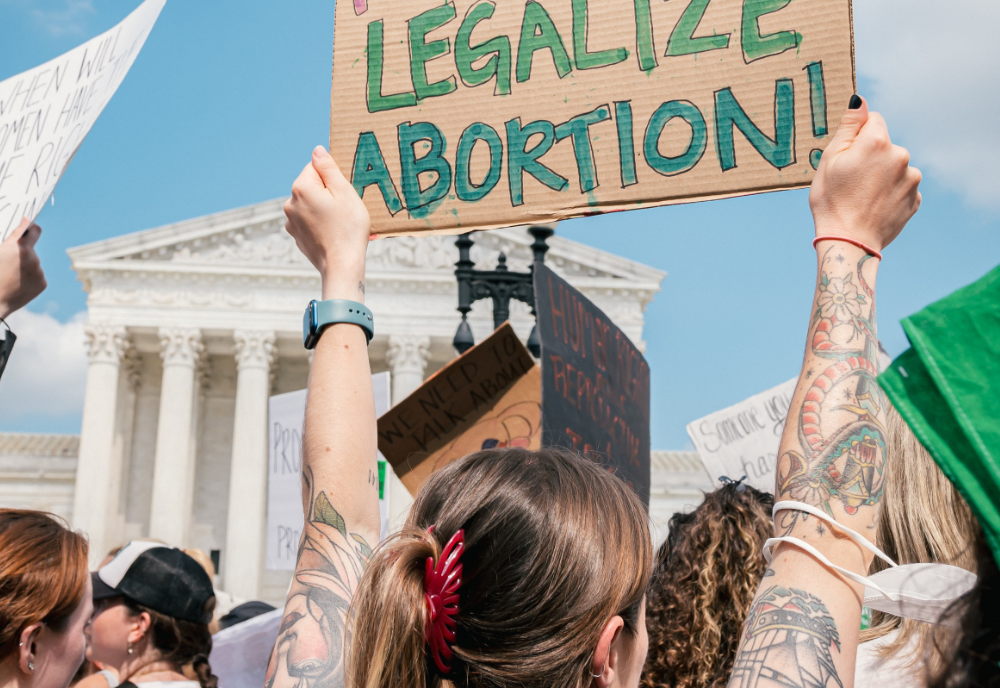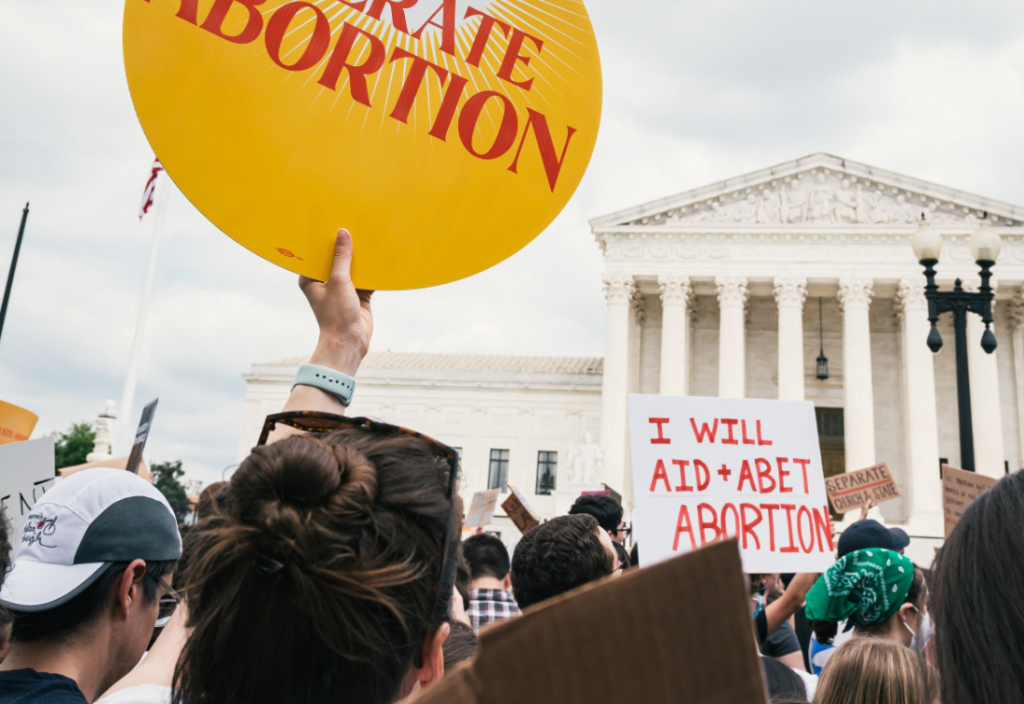On the ABC’s Religion & Ethics website recently, Joanna Howe, a Professor of Law at the University of Adelaide Law School, claimed the ACT government’s takeover of Calvary Hospital would have far-reaching ramifications for freedom of religion and freedom of conscience. But this is not the case.
In the article, Howe – an anti-abortion campaigner who takes part in pro-life marches and even interviews Christian Right politicians on the subject for her social media – claims that doctors, nurses and midwives will be “forced”, directly or indirectly, to participate in abortion.
“Freedom of conscience protects the rights of individuals to adhere to a religious and ethical position, independent of others’ viewpoints and regardless of others’ objections,” she wrote.
The right to conscientious objection will remain for those Calvary staff who transition to the new public hospital. Their freedom of religion and conscience is protected. What will change, however, is there will no longer be an institutional conscientious objection preventing Canberra ratepayers from accessing, in a non-judgemental way, the services they are entitled to expect of a publicly funded hospital.
Far from providing a “safe harbour” for religious medical practitioners, as Howe claims, the imposition of institutional conscientious objection in practice suppresses the free exercise of individual conscience. It prevents patients from accessing lawful services at publicly funded hospitals even if the community, the government and individual doctors all agree such services should be provided.
In his Religiosity in Australia (Part 2): Religious minds, religious collectives – a publication of the Rationalist Society of Australia – social researcher Neil Francis noted that the idea of an ‘institutional conscience’ is a confected notion. A ‘conscience’ is the interaction of the private thoughts and emotions of a natural person exercising moral judgement. Institutions are not natural persons; they are legal confections of ‘personhood’.
“Institutions are confections of law, not natural persons, and their codes of conduct that prohibit certain choices are not conscience: they are rules that suppress real conscience and extinguish agency. Such prohibitions are particularly egregious when services are being provided to the public, on the public purse,” wrote Francis.
“When an institution seeks to mandate or prohibit particular actions through a Code of Ethics or Code of Conduct (or mission statement or any other enterprise document), this is not ‘conscience’. It’s ideological regulation… Insofar as it aims to apply penalties to violators of its prearranged conditions, it acts like law, not conscience. In practice it suppresses conscience.”
Far from providing a “safe harbour” for religious medical practitioners, as Howe claims, the imposition of institutional conscientious objection in practice suppresses the free exercise of individual conscience.
Publicly funded hospitals operating under a religious code of ethics are serving the interests of religious leaders rather than the interests of the general public or even people who may share the hospital’s faith background.
Religious clerics who claim to speak for their communities are out of touch with their own flocks on many social issues. In Religiosity in Australia (Part 1): Personal faith according to the numbers, Francis shows how the views of Catholic bishops on issues such as abortion and voluntary assisted dying are at odds with the majority of Catholic Australians – and have long been so.
Data from the 2019 Australian Election Study conducted by the Australian National University show that, overall, 93 per cent of Australians (including 90 per cent of Catholics), support abortion being readily available.
Similarly high support was found among other religionists, including 92 per cent of Anglicans, 95 per cent of Uniting/Methodists, and 85 per cent of smaller Christian denominations. Of those Catholics in support of abortion, 61 per cent supported availability on demand. Just 2 per cent of Australians and 1 per cent of Catholics believe it should never be available.
Thus, as Francis argued, prohibitive abortion policy serves the particular interests of the church’s senior hierarchy at the expense of the interests of the Australian public, including Catholics.
With Christian affiliation on track to fall below 40 per cent of the population at the next Census in 2026, the ACT government’s decision to take over Calvary Hospital raises the question of how much longer other governments across Australia will continue privileging – and funding – narrow religious interests above the well-being of women and the wider community.
In a submission to the recent Senate inquiry into universal access to reproductive healthcare, the Australian National University Law Reform and Social Justice Research Hub (ANU LRSJ Research Hub) said more than 20 publicly-funded hospitals and health facilities were currently operating under religious codes of ethics across Australia.
These institutions, the Research Hub said, prohibited or strongly advised against the provision of many reproductive health services, including abortion and auxiliary procedures, as well as contraceptive services.
“People seeking these services at these publicly-funded, religious institutions, may be turned away on the basis of institutional objection. Such an objection proves to be a major barrier to access. This is particularly true where there are few proximate health service providers,” the submission said.
“The [World Health Organization] Best Practice Guideline strongly recommends prohibiting institutional objection, while maintaining the right of individual practitioners within those institutions to conscientiously object to providing reproductive health services.”
The Senate committee’s report noted that patients “reported experiencing institutional, as well as individual, conscientious objection and other manifestations of systemic stigma”. Although the committee noted the problem of institutional conscientious objection, it failed to make any recommendations to address it.
Even health practitioners who work in such publicly funded religious hospitals have been sounding the alarm about the risk to patients’ lives due to the application of strict religious codes of ethics.
As a recent ABC investigation revealed, staff have urged vulnerable women to seek urgent help from another public hospital because the religious hospital would wait too long before performing life-saving procedures.
Women in regional areas are particularly vulnerable to having to rely on religious hospitals for their maternity care. But even in metropolitan Brisbane some women are unfortunate enough to be located on “the wrong side of the river” – the south side – facing institutional conscience objection at The Mater Hospital and individual conscientious objection at the public Logan Hospital.
While ‘pro-lifers’ like Howe and a small minority of the population may decry the ACT government’s takeover of Calvary Hospital, the majority of locals will no doubt welcome the government’s move to reclaim public health into public hands.
It’s now time Australians elsewhere demand that their governments, at the very least, require all publicly funded facilities to deliver the services the public expects and deserves.
If you wish to republish this original article, please attribute to Rationale. Click here to find out more about republishing under Creative Commons.
Photos by Alexandr Podvalny and Sylvain Brison on Unsplash.














